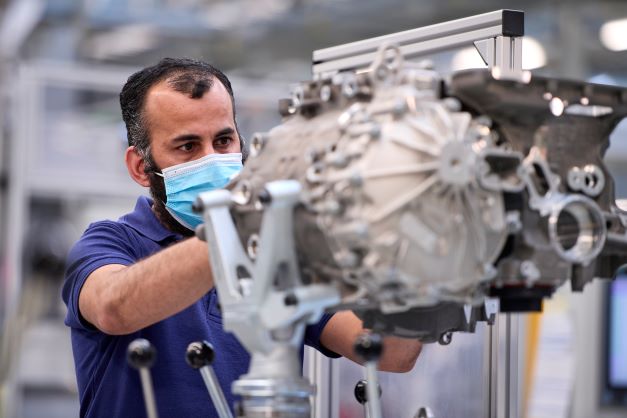
The global automotive sector is being forced to re-think its reliance on just-in-time (JIT) component sourcing as a result of the most fragile supply chains since the start of the century, according to the findings of a new report.
The Achilles Supply Chain Resilience Index (ASCRI) report for the first quarter of 2022 indicates the resilience of global supply chains has fallen to 39.8 – the first time the figure has fallen below its 40-point high-risk threshold, with further declines in resilience expected.
With the performance of the automotive sector already hit hard by the ongoing semiconductor shortage, further disruption caused by the conflict in Ukraine and COVID-prompted restrictions on movement in China makes automotive manufacturing one of the industries most exposed to supply chain risks.
The restriction of workers’ movements in China has led to many leading car marques including VW to cease production at several of its plants in China, not long after the semiconductor shortage prompted it to stop manufacturing at other factories in China and Germany last year.
Also contributing to a sector especially low in resilience is the ongoing lithium shortage, which has already begun to stifle electric vehicle (EV) production.
The industry’s reliance on just-in-time sourcing looks set to be challenged by a perfect storm which has dealt a major blow to the resilience of the automotive supply chain.
Katie Tamblin, chief product officer at Achilles, said: “We are seeing unprecedented levels of risk across global supply chains given events in Ukraine and China in particular, and for the automotive sector, these risks look set to have a lasting impact.
“With the resilience of the sector’s supply chain having been hit particularly hard over the last 12 months in particular, it seems likely that standard practises such as just-in-time sourcing will need to give way to a more pragmatic approach for the foreseeable future.”
The Achilles Supply Chain Resilience Index (ASCRI) is a time series index measuring changes in supply chain risk. The index measures underlying supply chain risk by country across six categories: Economic, Environmental, Labour Practices, Legal and Governance, Resilience, and Safety and Security. Each country’s score is derived by combining the Achilles’ Scores of suppliers based in the country with that country’s overall performance in those six categories. This framework is then supplemented by a range of global measures, including shipping and sentiment data. The Q2 Report uses data from January to March 2022.
